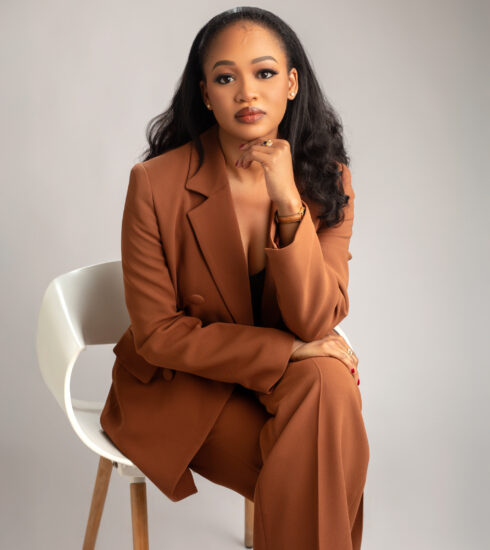From Fashion To Real Estate: Ijeoma Ubosi’s Remarkable Entrepreneurial Journey
In the fast-paced world of fashion entrepreneurship, where style and innovation meet, Nigerian visionaries are making their marks on the international scene.
Likewise, the Nigerian fashion retailing sector has become a haven for forward-thinking people determined to break through barriers and leave their imprint on the industry.
Equipped with inventiveness and grit, these entrepreneurs are moulding the fashion landscape and working to bring Nigerian fashion to a global audience.
Ijeoma Ubosi, a seasoned businesswoman, started her entrepreneurial journey 24 years ago, and ever since then, she has made a name for herself in the cutthroat fashion industry. From modest beginnings in the trunk of her car, Kontessa has grown into a diverse empire. In addition to jewellery, shoes, and clothing, Ubosi has dabbled in the exciting real estate field, demonstrating her adaptability and business acumen. Her journey is a monument to ingenuity and tenacity, giving her a unique position in the entrepreneur space and a lasting impact on the fashion industry.
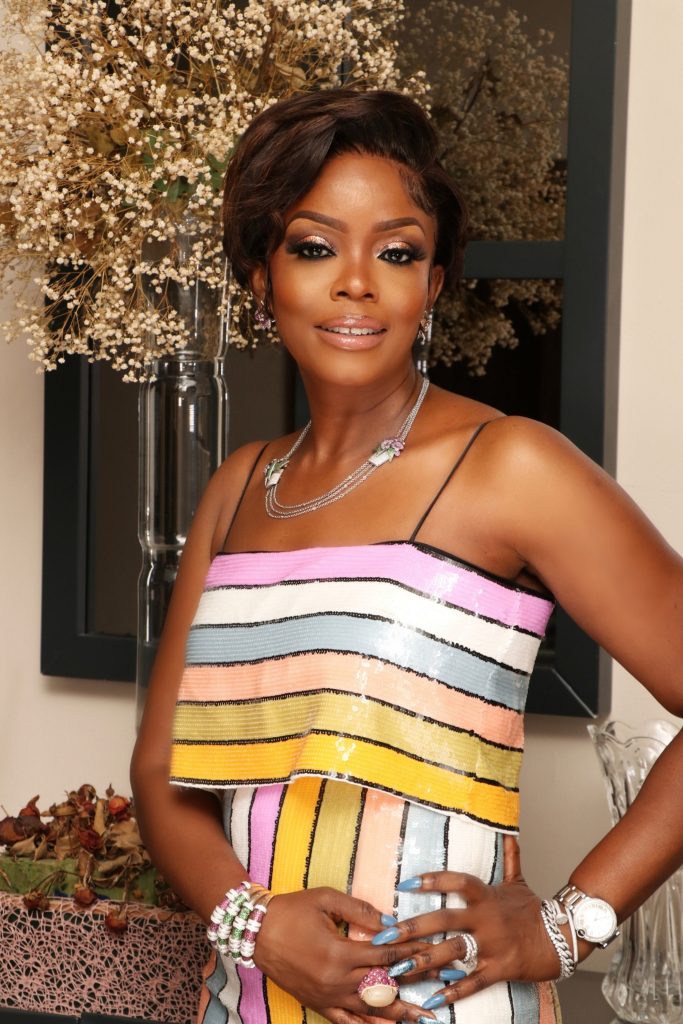
In this interview with THEWILL DOWNTOWN’s Dorcas Akintoye, Ijeoma Ubosi talks about the complexities of her remarkable career. From her venture into the fashion industry to her most recent accomplishments in real estate, Ubosi offers insights into the obstacles she overcame, the impact she seeks to make, and the always-changing world of entrepreneurship.
Ijeoma, your journey from Pharmacy to fashion is fascinating. What pivotal moment made you shift gears and dive into the fashion industry?
I have always been interested in fashion from a young age, and it started during one of my summer holidays while studying Pharmacy at the University of Bath. I travelled to America, stumbled upon a designer outlet, and started buying shirts from there and selling them in London. And so my retail journey started.
I moved back to Nigeria in 1997. At the time, Pharmacy practice wasn’t as well regulated as it is now; therefore, it was not as fulfilling for me, so I decided to continue my business. Also, as a foreigntrained Pharmacy graduate, I had to go for a conversion course at a university in Nigeria to be able to practice here, which, in 1997, was held at the University of Jos. Having just moved back and gotten married, I didn’t want to travel far from home for eight weeks. By the time the program was offered at the University of Lagos, I was doing very well in my business and didn’t feel inclined to do it. But indeed, it had always been my desire to return to Pharmacy, and so in 2019, I went back to school in Abuja for close to three months to qualify to practice as a pharmacist 25 years after graduating. I must say it is one of the hardest things I’ve had to do, but with hard work and God’s grace, I came out top of the class despite being the oldest student.
This is in line with my life goal to embrace the Pharmacy profession once I’m in my fifties, and I have started that journey, so watch this space.
The name “Kontessa” is unique and memorable. Can you share the story behind how you came up with the name for your fashion retail store?
It was my husband Chris and I mulling over different names, and he came up with the name; I liked it, and that was it. I was predominately dealing with women’s fashion at the time, and, in Italian, a Contessa is a woman of high rank and we wanted all of our clients to feel important and confident when shopping with us. We changed the C to a K to own it and stand out.
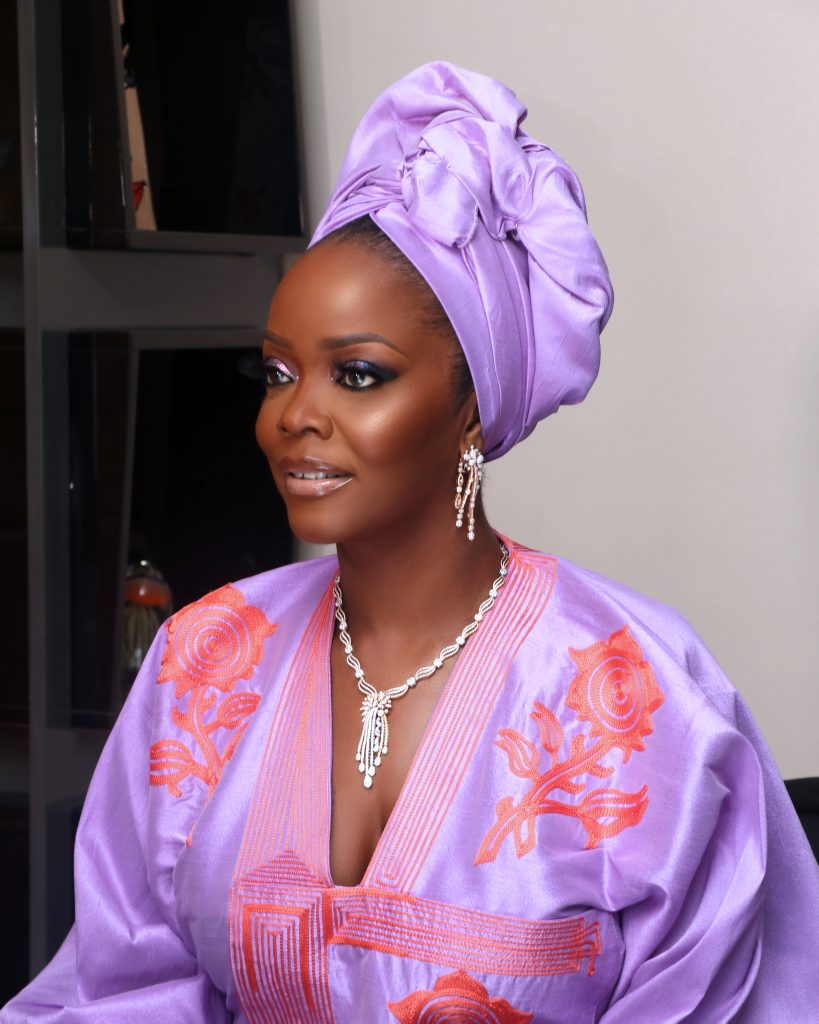
Building a fashion empire requires a strong brand identity. How did you define the essence and personality of Kontessa, and how has it evolved over the years?
Consistency and the desire to satisfy your clients’ needs. We have been able to retain our customers from 1997 when we started till date. They have been on the journey with us from inception and have grown with us, with many more joining over the years. The ability to always deliver what your customers want at the right price and in a comfortable environment has helped build the brand.
We pride ourselves in our customer service as we go above and beyond to ensure that our clientele enjoy their purchases from us.
The journey from a mobile shop to a multi-branch retail store is inspiring. What pivotal decisions or strategies do you credit for the substantial growth of Kontessa over the years?
I started with a mobile store in a car when I moved back, going from one establishment to another, building my clientele and then moving on to pop-up events in my home. In 1999, having grown my client base, I decided to open a store in a mall in Victoria Island. With help from my Dad and husband, who each paid one year’s rent, my store opened in 2000, and within three months, the business had grown exponentially.
The business grew, and by the time I moved to a stand-alone building in 2012 at No 13 Agoro Odiyan Street Victoria Island, I had six stores in the plaza doing different specialities such as:
– Nara Camicie: Italian franchise for retail sales of blouses and shirts for both men and women
– Arsenal Ventures: Apparel for fashion conscious women
– Luggage: TUMI brand of luggage and accessories
– Kontessa kids: shoes and accessories for children
We also have stores in Ikeja and Abuja.
I am quick to analyse each of the ventures I’ve gone into and make critical decisions without sentiment.
Each of my businesses should be able to support themselves and pay their bills; I have put structures in place to keep each brand strong and relevant.
Most importantly, I have the most committed and dedicated staff that take the business seriously and treat it like their own.
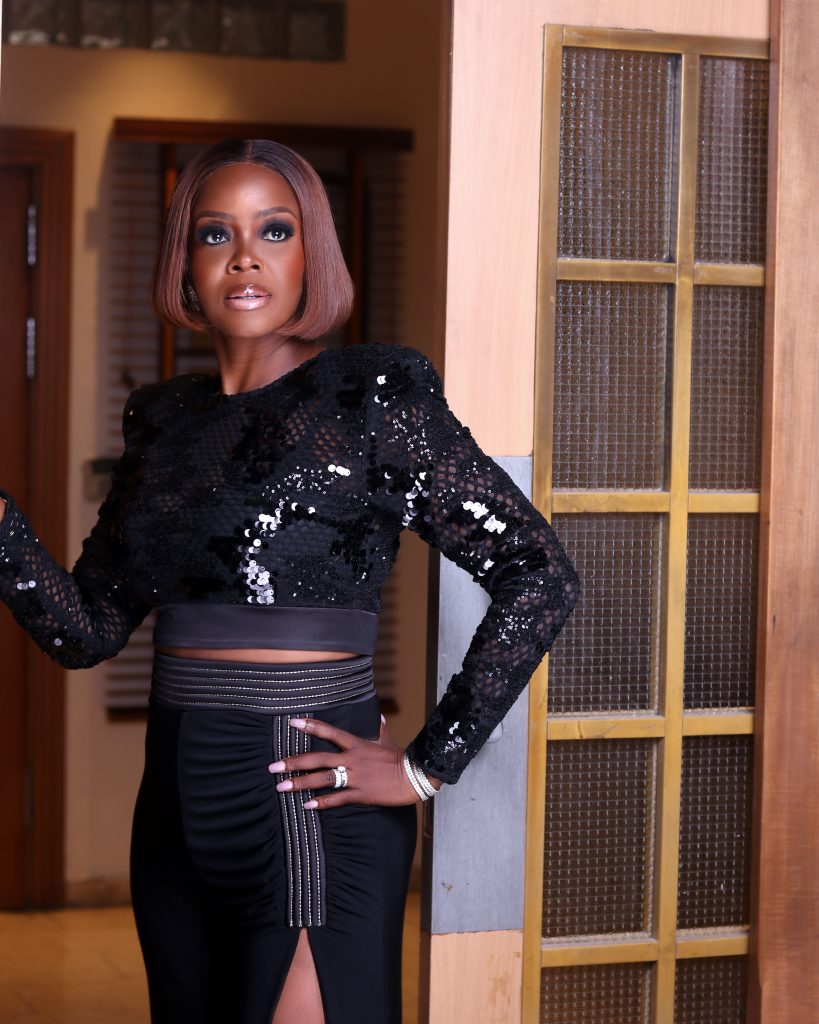
Diversifying into fast-moving consumer goods (FMCG) after attending Lagos Business School is a strategic move. What insights did you gain from the course that influenced this decision, and how did it impact your business?
I encourage every entrepreneur to attend the Owner Manager Program (OMP) at Lagos Business School. You learn a lot about putting structure into your business, paying attention to different aspects, delegating, and giving your staff the courage to speak up and voice their opinion. The networking opportunity is tremendous as I got to engage with 48 other business owners in different fields and even collaborate with a few of them.
My foray into FMCG wasn’t pleasant, and I pulled out of it after three years as it was timeconsuming and not as fulfilling to me as my core businesses were, so I decided to refocus on them. The good thing was that I was able to pick myself up and move on, using my experiences to help in my other businesses.
How are you able to manage Kontessa, Nara and others, which deal with fashion along with Motivo and Admugo, which are different sectors?
Motivo is involved in sourcing and supplying corporate gifts and seasonal ensembles for corporates and individuals, while Admugo deals with 18ct gold and diamond jewellery retail.
I got into both businesses quite by interest. I was in Milan attending a shoe exhibition, and one of my partners introduced me to a jewellery designer, and we started working together.
In Milan, my branding consultant took me to a gifts fair to show me ideas of what he was proposing to my company. I then realised it was a good business opportunity for me, so I took time out to study both businesses, and after a year or so, I started, and they have both grown and done very well to the glory of God.
Of course, with the dedicated and well-trained staff I have, they are able to run the businesses very effectively.
Reflecting on your early days, what was the most unexpected challenge you faced as an entrepreneur, and how did you navigate through it?
My most unexpected challenge came in the early 2000s when the government placed a sudden ban on the importation of textiles, and I had a consignment of about 1000 Nara Camicie shirts confiscated by customs.
Another challenge happened when I was still operating from home; I was expecting our first child then and wasn’t making any business trips. I had goods sent to me from New York, and I’m still waiting twenty-four years later. The only compensation I received was based on the weight of the cargo, not on the value of the shipment.
With each challenge, I was able to pick myself up and move on. I encounter challenges on a day-to-day basis, from flood damage to currency fluctuation and delinquent clients pilfering, but I see every obstacle as a stepping stone. I learn from them and put things in place to minimise future occurrences.
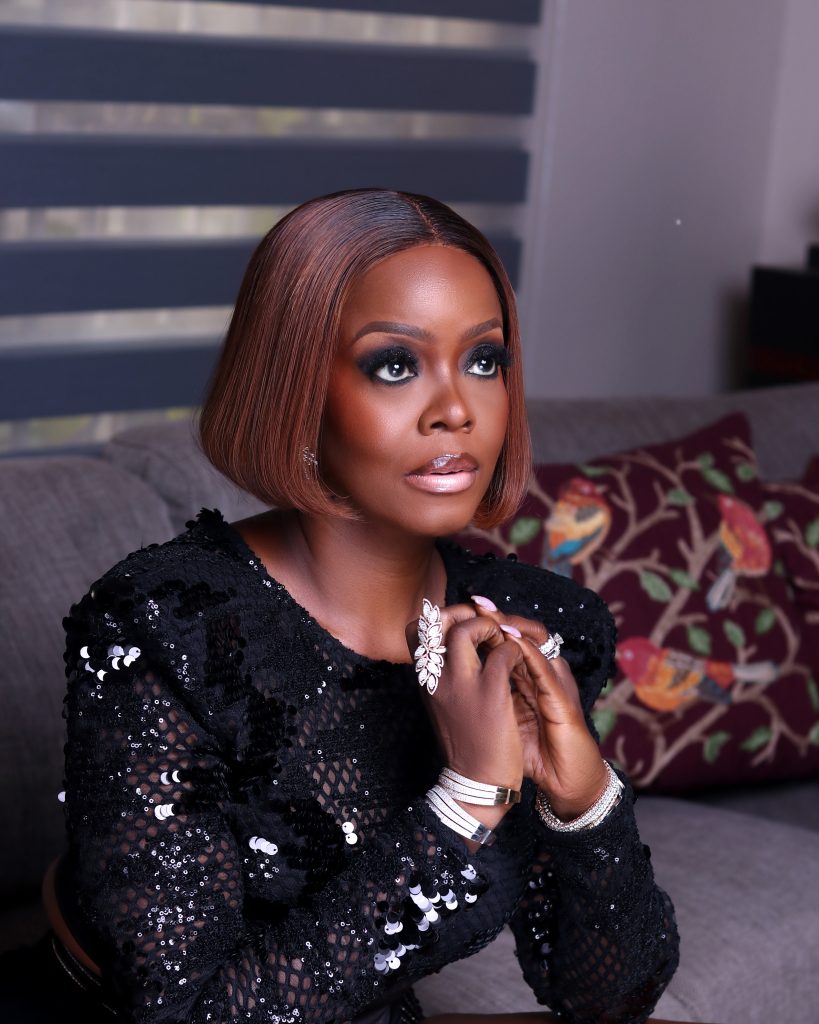
Balancing family life and a thriving business is no small feat. How do you maintain that balance, and what advice do you have for other entrepreneurs with similar challenges?
I’m blessed to have a very understanding husband who has encouraged me to soar and fly high, so that has made things easier to manage.
I also have a good team at work and a great support system at home, so I have been able to maintain a good balance. I enjoy a very close relationship with each of my three children, and I’m always there for them and my immediate family.
I will say don’t be afraid to ask for help, create a good support system, delegate responsibilities where possible and take time off to exhale. Bear in mind that family is your most important asset.
Kontessa caters to both medium and high-end markets. How do you balance offering luxury items and maintaining accessibility for a broader customer base?
It’s the same concept as a department store carrying multiple brands. We are able to serve different cadre of customers while maintaining an enhanced customer experience and a high quality of products irrespective of price point.
Social media plays a significant role in the fashion industry today. How has Kontessa leveraged digital platforms to connect with customers and stay relevant online?
That is a work in progress for us. We have a team responsible for our content, and our following is building slowly but surely. We do make sales daily through our social media posts, such as Instagram, so it’s encouraging as we are active. Social media is here to stay, so we’re taking advantage of the opportunity it offers to get exposure to new and different clients, advertise at a low cost and continue strengthening the brand. It has its downsides, but we’re here to exploit the upside.
A good percentage of our customers are in the older age bracket as well and haven’t quite embraced online shopping and social media, so we are intentional about building our clientele in the younger age bracket.
As Kontessa grows, what legacy do you hope to leave in the Nigerian fashion industry, and how do you see the brand evolving in the future?
I want Kontessa to exist beyond my lifetime, such that its values, vision and missions carry on, increasing its clientele base and enhancing customer experiences.
I would like it to be seen as the first option and onestop multi-department store for ladies, men’s shoes, travel luggage, and much more. I also want young budding entrepreneurs to see that hard work pays; you can start small, set your goals, clearly define your mission, work hard towards it, grow organically, and see your business blossom.
Sustainability is increasingly becoming a focal point in the fashion industry. How does Kontessa approach sustainability, and what steps have you taken to make your brand more environmentally conscious?
Whatever part of the supply chain that we can control, we do what we can to be more environmentally conscious. We actively prioritise sustainability by selecting suppliers with a small carbon footprint, ensuring their environmental goals align with ours. We have also transitioned to using recyclable and biodegradable bags to pack our customers’ orders.
In our day-to-day work, we’ve adopted a paperless approach in the office through the increased use of emails and digital invoices.
These initiatives are central to our effort to reduce our environmental footprint.
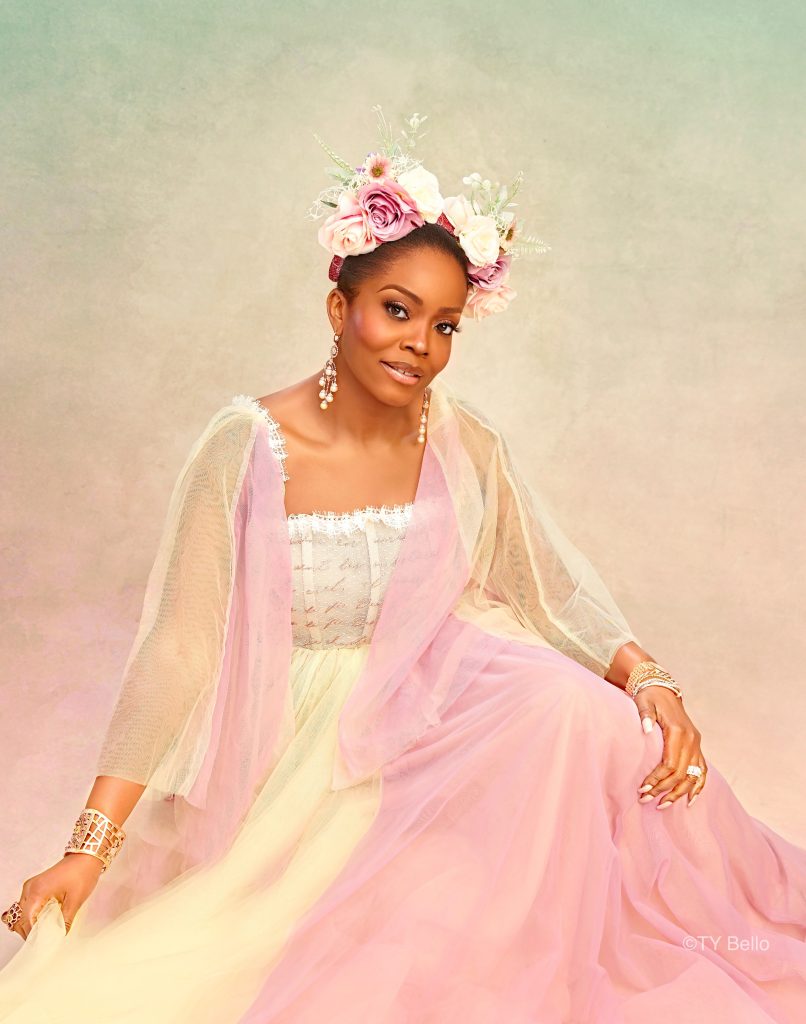
Technology has transformed the retail landscape. How has Kontessa embraced technological advancements to enhance the customer experience and streamline operations?
We are deploying technology across several aspects of our business.
Our payment systems are constantly being enhanced, as are our inventory management systems, particularly as we have multiple stores.
We also do a lot of customer-centric marketing based on the analytics we obtain from our clients. What we do, for instance, in Abuja is different from Lagos. Indeed, from our data, our clients in Ikeja have different tastes than those in Victoria Island, Lagos.
Indeed, you can’t escape embracing technology in the space in which we operate.
You recently ventured into the real estate business; could you share the story of what motivated you to start a career in real estate, and when did you decide to take the plunge?
I started this about four years ago through a close friend who is big in the real estate and dredging space. He kept on encouraging me to start with a piece of land I had acquired about 20 years ago when I saw how the area had fully developed. I built that successfully and made a healthy profit, so I decided to delve more into it, and today, I have a few more projects under my belt. We actually have some properties for sale at the moment.
It’s tough with the unpredictable exchange rates, the proliferation of similar properties and daily rising costs, so profits are now reduced. To combat this, we’ve adopted strategies that enable us to sell quickly and move on to the next project. We also differentiate ourselves by our innovative designs, workmanship, and high-quality materials.

Dorcas Akintoye is a versatile writer with a passion for beauty, fashion, relationships, and culinary delight. With a keen eye for detail and a passion for storytelling, she adds a touch of elegance to every topic she explores. She is a writer at THEWILL DOWNTOWN.





